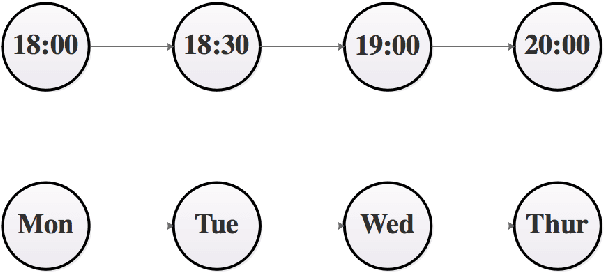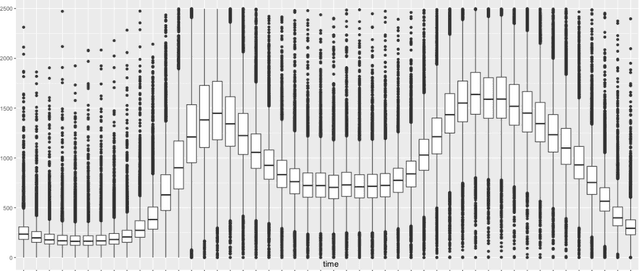Anastasia Ushakova
Learning to Predict with Highly Granular Temporal Data: Estimating individual behavioral profiles with smart meter data
Nov 23, 2017



Abstract:Big spatio-temporal datasets, available through both open and administrative data sources, offer significant potential for social science research. The magnitude of the data allows for increased resolution and analysis at individual level. While there are recent advances in forecasting techniques for highly granular temporal data, little attention is given to segmenting the time series and finding homogeneous patterns. In this paper, it is proposed to estimate behavioral profiles of individuals' activities over time using Gaussian Process-based models. In particular, the aim is to investigate how individuals or groups may be clustered according to the model parameters. Such a Bayesian non-parametric method is then tested by looking at the predictability of the segments using a combination of models to fit different parts of the temporal profiles. Model validity is then tested on a set of holdout data. The dataset consists of half hourly energy consumption records from smart meters from more than 100,000 households in the UK and covers the period from 2015 to 2016. The methodological approach developed in the paper may be easily applied to datasets of similar structure and granularity, for example social media data, and may lead to improved accuracy in the prediction of social dynamics and behavior.
 Add to Chrome
Add to Chrome Add to Firefox
Add to Firefox Add to Edge
Add to Edge